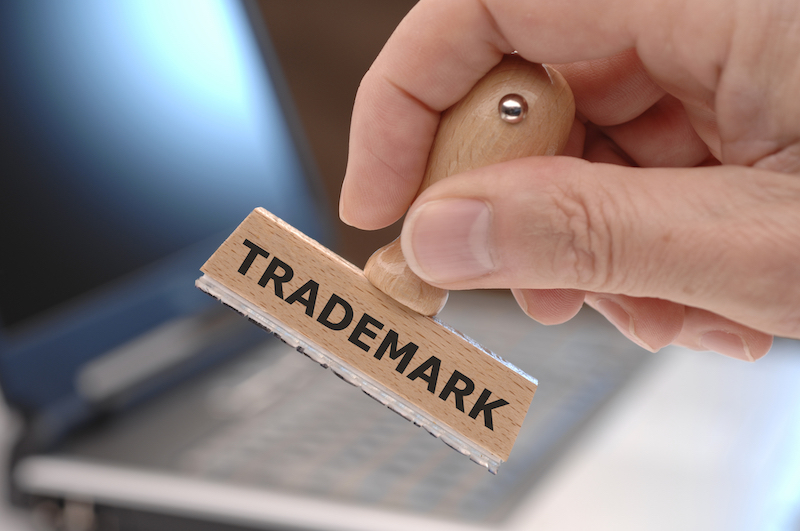Trademarks, words, or logos used to indicate the source of goods or services, are judged for their relative strength or weakness. The nature of the mark, its strength or weakness, will directly relate to the mark’s performance in the market as well as the scope of its legal protection. As the United States Patent and Trademark Office (“USPTO”) puts it, a trademark’s significance can be categorized along a continuum, ranging from highly distinctive to generic. In analyzing a trademark’s significance, it must be done in consideration of the trademark in relation to the specific goods or services under the trademark.
There are essentially five levels of trademarks on the continuum often cited in the law, from the strongest to the weakest: fanciful marks, arbitrary marks, suggestive marks, descriptive marks, and generic marks.
Fanciful Trademarks: Sometimes referred to as “coined marks,” trademarks considered fanciful are the strongest marks as they are considered to be inherently distinctive. These trademarks are invented for the sole purpose of servicing as the trademark. For example, PEPSI, KODAK, EXXON, XEROX. Because these trademarks are made up and not immediately recognizable or they do not immediately implicate the underlying goods or services, a bigger upfront effort is required to educate the public as to the relationship between the trademark and the goods or services. However, these marks enjoy the broadest scope of protection against third-party use.
Arbitrary Trademarks: These trademarks are comprised of commonly used terms or words. However, the trademark is wholly unrelated to the goods and services. In other words, and as the Federal Circuit stated, an arbitrary mark is “a known word used in an unexpected or uncommon way.” Examples of arbitrary marks include DOVE for chocolate and APPLE for computers. Like fanciful marks, effort is required to educate the public to connect the trademark to the goods or services, but the scope of protection is very broad.
Suggestive Trademarks: As the terms suggest, suggestive marks hints at the nature of the goods or services. Stated another way, suggestive marks require some thought or imagination to determine the nature of the goods or services without actually describing it. AIRBUS for an airline or NETFLIX for a streaming service are examples of suggestive marks. Because these marks are suggestive of the nature of the goods or services, less education of the public is required and may have an inherent sales appeal. While suggestive marks enjoy meaningful protection, it is less extensive than fanciful or arbitrary marks. Further, the line between these marks and the next category of marks can often be difficult to determine.
Descriptive Trademarks: As the courts have put it, these marks simply describe “an ingredient, quality, characteristic, function, feature, purpose, or use” of the goods or services. Generally, descriptive marks are not registrable on the principal register. Other types of marks can be considered “descriptive” and thus not registerable: deceptively misdescriptive, geographically descriptive, or surnames. However, while descriptive marks may not initially be able to be registered if a descriptive mark has been used and marketed exclusively as a trademark for a sufficient amount of time, it may develop secondary meaning and become registerable. Secondary meaning means that the mark has come to identify the mark as being associated as the source identification of the goods or services.
Generic Words: Generic words are what the public understands to be the common name for the goods or services in question. For example, “clocks” for timepieces. These can never be registered and be appropriated by a single party as trademarks for the goods or services they identify. The public should be allowed to use generic common terms. Interestingly, valid trademarks may become generic when the majority of the consuming public comes to consider the trademark as the product. These trademarks then lose their protection. For example, ASPIRIN, CELLOPHANE, ESCALATOR.
The strength or weakness of a potential trademark is only one step in determining if that potential trademark is eligible for registration and the scope of protection that can be afforded to it.
Contact Us
If you need help filing a trademark for your company, contact a member of Timothy Coons’ legal team! Contact us at (480) 744-6621 or at request@counxel.com. Don’t forget to check out the good things that others are saying about the services they received from Timothy Coons on Google.
This article is intended for informational purposes only and does not constitute legal advice for your specific situation. Use of and access to this article does not create an attorney-client relationship between you and Counxel Legal Firm. Please contact request@counxel.com or (480) 744-6621 to request specific information for your situation.
*Conveniently located off the 101 Freeway and the US 60 in the middle of Phoenix, Scottsdale, Tempe, Chandler, Gilbert, Mesa, and Queen Creek!



